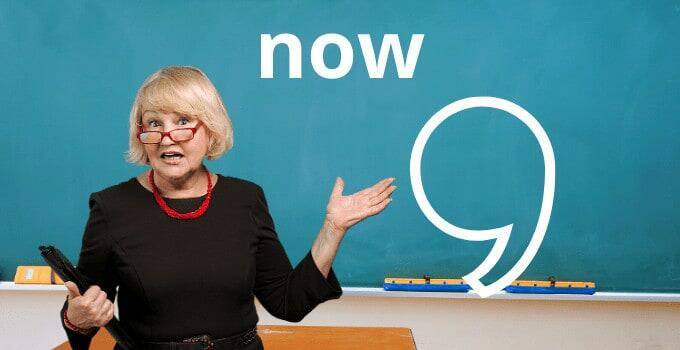Punctuations provide prosodic cues that convey the intention and tone of texts. The rhythm of the text can be manipulated by the mastery of punctuation placement, such as commas. Put simply, sentences without punctuations are like songs without beats while punctuation misplacement is equivalent to a person who could sing, yet hits the wrong notes …
English
Some words or phrases are often or always used in a way that means they will need to be followed by a comma. Other words or phrases can take up several different positions in a sentence. Whether or not a comma is needed will vary based on where the word is. “Currently” is an example …
Writing could sometimes feel like grasping at straws when we have to decide whether or not to put a comma before or after a certain word. As perplexing as it may seem, punctuations such as commas are actually fairly easy to use. Punctuation should become much less difficult, especially if we know our cohesive devices …
One of the things that makes English such a great language is how versatile it is. As an example, it’s possible to turn many nouns or verbs into adjectives by adding a -y on the end. Things get complicated when the word ends in an “e,” though. As an example of which, people often ask …
Deciding where to place commas often takes its toll on anyone trying to write a sensible text. Comma-decisions oftentimes are a cause of writing mishaps such as meaning ambiguity or unnecessary complexity. Although accidental comma mistakes sound amusing and entertaining in many cases, it is still recommended to correctly position this punctuation to prevent misinformation. …
Some words are more common than others. Others just sound cool. No matter whether a word is as typical as “and” or as unusual as schadenfreude, however, one thing that doesn’t change is commas. That’s because, contrary to popular belief, what determines the rules for comma usage is not the word itself but the part …
No matter how many times you use the word now and commas together, you might still get confused about whether you are doing the right thing. You are not the only one experiencing this. English can be a complicated language with complex punctuation rules, especially when it concerns comma usage. In this article, we are …
Some people would say that oral speech is more difficult than writing; however, others also think the other way around. In writing, punctuation rules are one of the most vexatious concerns. Punctuations, such as commas, provide further meaning to the reader because of their ability to alert the initiation of pauses. Pauses are then essential …
Commas can be tricky. On top of that, “thus” can be a tricky word. “Thus” can mean “in this way” or “like this.” It can also have the same meaning as the words “consequently,” “therefore,” and “as a result of.” Knowing when a comma is needed with the word “thus” depends in part on which …









